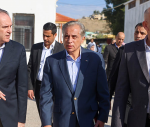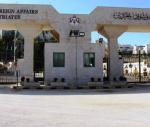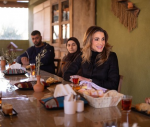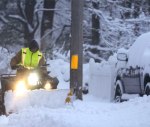You are here
War-torn Syria goes to the polls amid economic crisis
By AFP - Jul 16,2020 - Last updated at Jul 16,2020
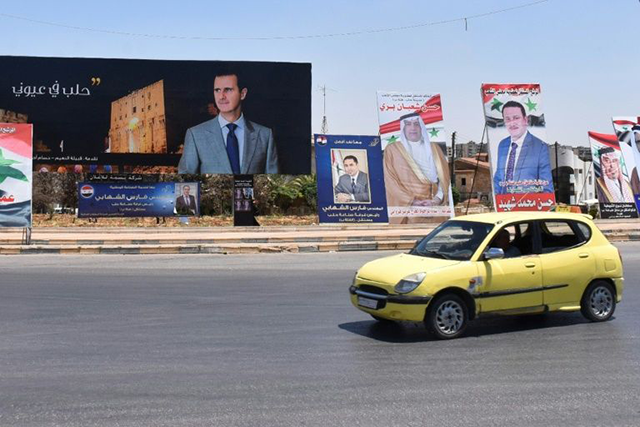
Syria's parliamentary election will take place on Sunday as President Bashar Assad marks a second decade in power in a country battered by war and mired in international sanctions and economic woes (AFP photo)
DAMASCUS — Syria prepared for parliamentary elections to be held on Sunday as President Bashar Assad marked a second decade in power mired by war, international sanctions and economic woes.
The legislative polls, to be held across 70 per cent of territory under government control, are the country's third since the start of the war in 2011.
As the war-battered economy wanes, some 2,100 candidates -- including prominent businessmen under Western sanctions -- are competing for 250 seats.
Several lists were allowed to run across the country but any real opposition is absent from the poll, no surprises are expected and the ruling Baath party's hegemony is guaranteed.
The elections, held every four years and so far always won by Assad's Baath Party and its allies, were due in April but twice postponed due to the COVID-19 pandemic.
The global economic carnage wreaked by coronavirus has compounded Syria's woes, which include stinging inflation and the free fall of the national currency on the black market.
With many Syrians choking from the soaring cost of living, most candidates have pledged to stem the price hikes.
Food prices have doubled nationwide over the past year, in a country where more than 80 per cent of people already live in poverty, the World Food Programme says.
Others candidates are running on promises of reconstruction, fixing war-ravaged infrastructure and bringing home millions of refugees.
Translator Abeer Deebeh, 32, said voters would likely choose whoever seemed best positioned to improve their living conditions.
"People's demands are always the same and tied to living standards" and public services, she said.
"During the war, the priority might have been security but now it's gone back to the economy."
Economy and sanctions
Syrians have been called to cast their votes in 7,313 polling stations nationwide, some of them in areas the government did not control the last time polls were held.
"These parliamentary polls are being held at a moment when the Syrian army... has seized back most regions once held by armed groups," said Heba Fatoum, a judge and a member of the electoral commission.
Russian-backed government forces have retaken control of several regions, Eastern Ghouta on the capital's doorstep in 2018 and the southern part of Idlib province in the northwest earlier this year.
Those displaced from areas still outside government control will be able to cast their ballots in polling stations set up specially for them across the country.
But Syrians outside the country, including millions of refugees, cannot take part.
"Expatriates are not allowed to vote in the parliamentary elections except in the polling centres inside the country according to the elections law," electoral commission member Riad Al Qawas told Al Watan online newspaper.
The streets in Damascus and its countryside are lined with posters of candidates.
Among them are businessmen under Western sanctions, including the US Caesar Act implemented last month.
They include lawmaker Mohammed Hamsho, who is running for re-election, and has been blacklisted since 2011 for his support to Assad.
Also running is Khaled Zubaidi, who has been targeted by US and European Union sanctions over winning a government contract to build a luxury tourist resort near Damascus airport.
Syria's war has killed 380,000 people since it started with the repression of protests in 2011, but also laid waste to much of the country's economy.
'International consensus'
The new parliament will be expected to sign off on a new constitution and approve candidates for the next presidential poll.
Assad, who first came to power in 2000 after three decades of his father's rule, is expected to name a new prime minister after Sunday's vote.
Sworn in at the age of 34, the London-trained ophthalmologist briefly embodied the hope for change and economic liberalisation.
But 20 years on, nearly half of which marked by war, Assad's government is crippled by Western sanctions.
The war has spiralled into a complex battlefield involving foreign armies, militias and extremists.
Years of UN-brokered peace negotiations have yielded nothing and a parallel track led by government ally Russia and rebel backer Turkey has in recent years taken precedent.
With 2021 presidential elections approaching, there is no political solution to the war in sight.
Damascus-based analyst Osama Danura said he thought the Syrian government would be open to a political solution to end the war.
But "international consensus is a long-term and complicated issue. It's clear there is no understanding between the countries that have become actors in the Syrian war", he said.
Foreign Minister Walid Al Muallem last month said Assad would remain in power "as long as the Syrian want him to stay".
Danura said any presidential candidate next year will need "written approval from 35 members of parliament at least".
Related Articles
BEIRUT — Vote counting was under way Tuesday in Syria after reruns in five polling stations delayed the results of parliamentary polls guara
BEIRUT — Vote counting was under way Tuesday in Syria after reruns in five polling stations delayed the results of parliamentary polls guara
DAMASCUS — Syrians voted Sunday to elect a new parliament as the Damascus government grapples with international sanctions and a crumbling e








